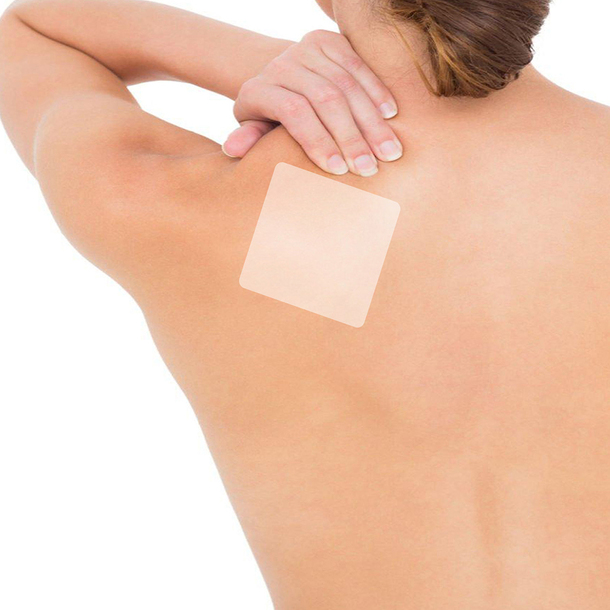Do Multivitamins Help With Hair Loss in Women?
 |
| Do Multivitamins Help With Hair Loss in Women? |
Hair loss is one of those deeply personal struggles that many women go through silently. Whether it’s postpartum shedding, stress-related thinning, or the slow, creeping reduction in hair volume over time, losing hair can feel frustrating and even emotional. While topical treatments and lifestyle changes can play a role, more women are turning to nutritional support to address hair loss from the inside out.
One question that keeps popping up is: Can a multivitamin actually help with hair loss? The short answer? It depends. In many cases, yes—when the root cause is a nutritional deficiency. In this article, we’ll explore how the right multivitamin for womens can support hair growth, what to look for on the label, and how to set realistic expectations.
What Causes Hair Loss in Women?
Hair loss isn’t a one-size-fits-all issue. It can be triggered by:
Hormonal changes (like menopause or postpartum shifts)
Iron or vitamin deficiencies
Thyroid imbalances
Stress and anxiety
Overuse of styling products or heat
Medical conditions like PCOS or alopecia
Understanding the cause is essential. If the issue stems from nutrient gaps, a multivitamin may help restore what’s missing and give your hair a better foundation for growth.
The Link Between Nutrients and Hair Health
Hair is a non-essential tissue, meaning your body prioritizes more vital systems (like your heart and brain) when nutrients are in short supply. When you're deficient, your hair is often the first thing to suffer. That's why ensuring you're nutritionally replete is key for healthy hair.
Nutrients play roles such as:
Supporting scalp circulation
Aiding in keratin production (the protein your hair is made of)
Promoting healthy follicles
Reducing breakage and thinning
A well-formulated multivitamin for womens can target multiple aspects of hair health at once—especially if you’re dealing with dietary limitations, hormonal shifts, or high levels of stress.
Key Nutrients to Look for in a Hair-Friendly Multivitamin
1. Biotin (Vitamin B7)
Probably the most well-known hair vitamin, biotin helps convert nutrients into energy and supports keratin infrastructure. While extreme deficiency is rare, even moderate insufficiency can lead to thinning hair and brittle strands.
2. Iron
Iron deficiency is a leading cause of hair loss in women, particularly during menstruating years. Low iron impacts red blood cell production and limits oxygen supply to hair follicles. If you’re chronically tired, pale, or experience heavy periods, iron might be the missing link.
3. Zinc
Zinc plays a role in tissue growth and repair, including hair follicles. It also helps maintain oil glands around the follicles. Too little zinc can cause hair shedding or even delayed hair growth cycles.
4. Vitamin D
A common deficiency in women—especially those who live in cloudy climates or wear sunscreen consistently. Vitamin D supports follicle health and may help create new hair shafts in dormant follicles.
5. Vitamin A
Helps produce sebum, the scalp's natural oil, which keeps hair healthy and moisturized. But balance matters—too much vitamin A can actually contribute to hair loss, so moderation is key.
6. Folate and B12
Both support red blood cell production and overall cellular regeneration. A deficiency in these can restrict hair follicle activity, slowing growth and causing shedding.
7. Vitamin C
Essential for collagen production and also helps with iron absorption. This duo effect makes vitamin C especially useful if your hair loss is tied to iron deficiency.
Will a Multivitamin Work for Everyone?
That’s the million-dollar question. If your hair loss stems from a poor diet, low iron, stress, or postpartum depletion, a high-quality multivitamin for womens can make a noticeable difference over time. But if your hair loss is rooted in autoimmune conditions, genetics, or chronic illness, you’ll likely need a more targeted medical approach.
The key is patience. Hair grows in cycles, and it can take 2–3 months to notice visible results. Be consistent, stay hydrated, and don’t forget to check your stress levels and sleep quality—because those matter, too.
How to Choose the Right Multivitamin
You don’t need a pill with a flashy label or trendy ingredient list. What you need is balance, bioavailability, and minimal fillers. Look for:
A solid daily dose of biotin (around 2500–5000 mcg)
Iron (especially if you’re menstruating or plant-based)
A blend of B-complex vitamins, particularly B12 and folate
Vitamin D3 over D2 for better absorption
A product that excludes megadoses of vitamin A unless prescribed
And be cautious with standalone hair gummies—they often omit crucial co-factors like iron or zinc.
For a deeper breakdown based on life stage, check out our guide on Multivitamins for Specific Women's Health Needs. Tailoring your supplement to where you are in life can make all the difference.
Other Ways to Support Hair Growth
A multivitamin is just one piece of the puzzle. To get the most out of it:
Eat a balanced diet rich in protein, leafy greens, nuts, and seeds
Avoid excessive heat styling or chemical treatments
Get regular blood work to monitor deficiencies
Practice stress management techniques like yoga or journaling
Massage your scalp regularly to stimulate blood flow
Remember, slow and steady wins the race when it comes to hair regrowth.
Conclusion
So—do multivitamins help with hair loss in women? They absolutely can, especially when the hair loss is related to nutritional gaps. While they won’t regrow hair overnight or solve every issue, they can provide your body with the support it needs to rebuild from within.
The right multivitamin for womens offers more than just a surface solution—it’s a proactive step toward healthier, stronger, and more resilient hair. If you’ve been wondering whether it’s worth adding one to your routine, it might be time to give your hair the internal boost it’s been waiting for.



Comments
Post a Comment